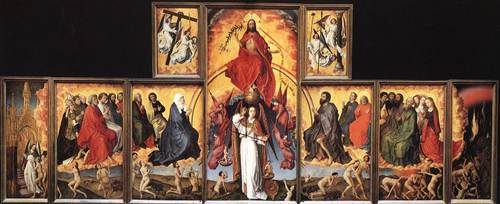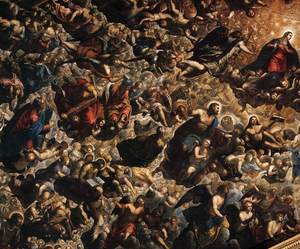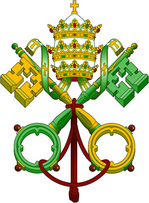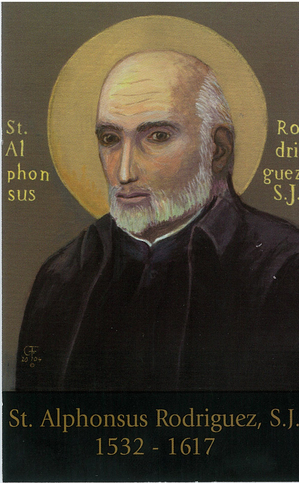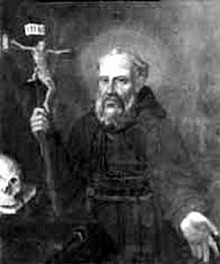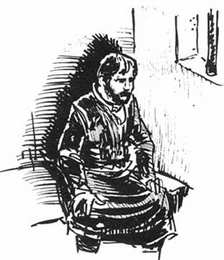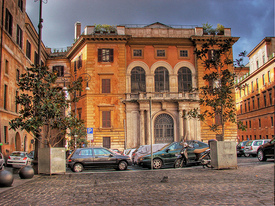 Here’s Benedict XVI’s October 26, 2009 address to the professors,
Here’s Benedict XVI’s October 26, 2009 address to the professors,
students and staff of the Pontifical Biblical Institute, on the centenary of
its foundation. Carefully note the key points the Pope raises for the authentic study of Scripture as Catholics!
Cardinals, Most Reverend Superior-General of the Society of
Jesus, Illustrious Rector, Illustrious Professors and Beloved Students of the Pontifical
Biblical Institute
I am delighted to meet with you on the occasion of the
100th anniversary of the foundation of your Institute, desired by my holy predecessor
Pius X, in order to establish in the city of Rome a center of specialized
studies on sacred Scripture and related disciplines.
I greet with deference
Cardinal Zenon Grocholewski, whom I thank for the courteous words he addressed
to me on your behalf. I likewise greet the superior-general, Father Adolfo
Nicolás Pachón, and I am happy to take the opportunity given to me to express
my sincere gratitude to the Society of Jesus, which, not without notable
effort, deploys financial investments and human resources in the management of
the faculty of the Ancient East, the Biblical faculty here in Rome, and the
headquarters of the Institute in Jerusalem.
I greet the rector and professors,
who have consecrated their life to study and inquiry in constant listening to
the Word of God. I greet and thank the staff, employees and workers for their
appreciated collaboration, as also the benefactors who have made available and
continue to make available the necessary resources for maintaining the
structures and activities of the Pontifical Biblical Institute. I greet the
former students united spiritually to us at this moment, and I greet you
especially, beloved students, who come from every part of the world.
One
hundred years have gone by since the birth of the Pontifical Biblical
Institute. In the course of this century, it has certainly increased interest
in the Bible and, thanks to Vatican Council II, especially the dogmatic
constitution Dei Verbum — of whose elaboration I was a direct
witness, participating as theologian in the discussions that preceded its
approval — there is much greater awareness of the importance of the Word of
God in the life and mission of the Church.
This has fostered in Christian
communities a genuine spiritual and pastoral renewal, which above all has
affected preaching, catechesis, the study of theology and ecumenical dialogue.
Your Pontifical Institute has made its own significant contribution to this
renewal with scientific biblical research, the teaching of biblical disciplines
and the publication of qualified studies and specialized journals. In the
course of the decades several generations of illustrious professors have
succeeded one another — I would like to remember, among others, Cardinal Bea
— who formed more
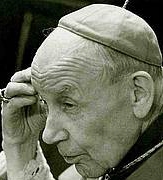
than 7,000 professors of sacred Scripture and promoters of
biblical groups, as also many experts now present in an array of ecclesiastical
services, in every region of the world.
Let us thank the Lord for this activity
of yours that is dedicated to interpreting the biblical texts in the spirit in
which they were written (cfr Dei Verbum, 12), and that opens to dialogue with
the other disciplines, and with many cultures and religions. Although it has
known moments of difficulty, it has continued in constant fidelity to the
magisterium according to the objectives themselves of your institute, which
arose in fact “ut in Urbe Roma altiorum studiorum ad Libros sacros
pertinentium habeatur centrum, quod efficaciore, quo liceat, modo doctrinam
biblicam et studia omnia eidem adiuncta, sensu Ecclesiae catholicae
promoveat” (Pius PP. X, Litt. Ap. Vinea electa (May 7, 1909): AAS 1
(1909), 447-448).
Dear friends, the celebration of the centenary is an end, and
at the same time a point of reference. Enriched by the experience of the past,
continue on your way with renewed determination, aware of the service to the
Church required of you, to bring the Bible closer to the life of the People of
God, so that it will be able to address in an adequate way the unheard of
challenges that modern times pose to the new evangelization. It is the common
desire that sacred Scripture become in this secularized world, not only the
soul of theology, but also the source of spirituality and vigor of the faith of
all believers in Christ.
May the Pontifical Biblical Institute continue,
therefore, growing as a high quality ecclesial center of study in the realm of
biblical research, making use of modern methodologies and in collaboration with
specialists in dogmatic theology and in other theological areas; may it ensure
a careful formation in sacred Scripture to future priests so that, making use
of the biblical languages and of the various exegetical methodologies, they
will be able to have direct access to biblical texts. In this regard, the
already mentioned dogmatic constitution Dei Verbum has stressed the legitimacy
and necessity of the historical-critical method, reducing it to three essential
elements: attention to literary genres; study of the historical context;
examination of what is usually called Sitz im Leben. The conciliar document
maintains firm at the same time the theological character of exegesis,
indicating the strong points of the theological method in the interpretation of
the text. This is so because the foundation on which theological understanding
of the Bible rests is the unity of Scripture, and this assumption corresponds,
as methodological way, to the analogy of the faith, that is, to the
understanding of the individual texts from the whole.
The conciliar text adds a
further methodological indication. Scripture being only one thing starting from
the one People of God, which has been its bearer throughout history,
consequently to read Scripture as a unit means to read it from the Church as
from its vital place, and to regard the faith of the Church as the real key to
interpretation. If exegesis also wishes to be theology, it must acknowledge
that the faith of the Church is that form of “sim-patia” without
which the Bible remains as a sealed book: Tradition does not close access to
Scripture, but rather opens it; on the other hand, the decisive word in the
interpretation of Scripture corresponds to the Church, in her institutional
organizations. It is the Church, in fact, which has been entrusted with the
task of interpreting authentically the Word of God written and transmitted,
exercising her authority in the name of Jesus Christ (cfr Dei Verbum, 10).
Dear
brothers and sisters, while thanking you for your pleasant visit, I encourage
you to continue your ecclesial service, in constant adherence to the
magisterium of the Church and assure each one of you the support of prayer,
imparting to you from my heart, as pledge of divine favors, the apostolic
blessing.

